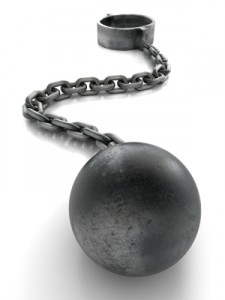 Obtaining a discharge order is the ultimate goal for most bankruptcy filers. The discharge order is what prevents creditors from collecting debts listed in a bankruptcy case once the case is closed. This order essentially shields the debtor from liability on the debts listed in their schedules.
Obtaining a discharge order is the ultimate goal for most bankruptcy filers. The discharge order is what prevents creditors from collecting debts listed in a bankruptcy case once the case is closed. This order essentially shields the debtor from liability on the debts listed in their schedules.
However, there are some types of debts that are not discharged in bankruptcy. The most common types of nondischargeable debts include: student loans, income taxes, child support, and criminal fines. There are exceptions to this rule. Student loans can be discharged when the debtor can show that repaying the debt will create an undue hardship for her or her dependents. Old income tax liability can also be discharged in some instances.
The Bankruptcy Code also allows creditors to dispute dischargeability of debts incurred by fraud. The most common way this arises is when a debtor uses her credit cards during the three month time period right before filing bankruptcy. When this happens credit card companies will sometimes bring separate lawsuits in the bankruptcy court to dispute dischargeability of the debt. These types of lawsuits are very rare but do happen on occasion.
There are some types of debts that debtors intentionally allow to survive the bankruptcy discharge. For example, in Chapter 13 cases when a debtor wishes to keep their house and continue making mortgage payments, the Chapter 13 plan will state that the mortgage will survive the bankruptcy discharge. Similarly, in Chapter 7 cases a debtor may want to keep a car after the case is concluded and will reaffirm the note secured by the car. Reaffirmation is a separate agreement which allows the debt to survive the bankruptcy discharge.
Fortunately, the most troublesome types of debts are usually discharged in bankruptcy cases. Payday loans with their high interest rates and aggressive collectors are discharged in both types of bankruptcy cases. Credit cards, medical debt, most types of judgments resulting from lawsuits, and other types of unsecured loans are all examples of debts that can be discharged in bankruptcy.